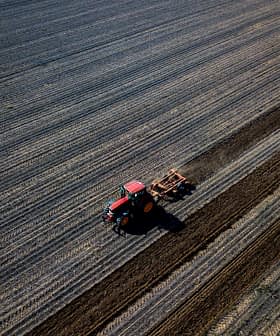'Digital Earth' Could Help Predict Effects of Climate Change
Scientists are building a digital model of the Earth that will act as an information system for better decision-making on development and environmental issues within the European Union.
A team of scientists and researchers from ETH Zurich University have created a high-precision virtual representation of Earth to simulate the effects of climate change.
Named Destination Earth, the so-called digital twin of the planet will model the impacts of natural and human activities on the planet.
The scientists plan to feed Destination Earth observational data used for weather forecasts and replicate as many processes occurring on the planet as possible, including the impact of humans on food, water and energy systems.
See Also:Project Helps Growers Prepare for Challenges Posed by Climate ChangeUltimately, they hope to predict future events based on the climatic fluctuations occurring on the planet.
Available data indicate that the continuously transforming climate is creating hostile conditions for humans.
According to the Germanwatch organization for equity and the preservation of livelihoods, extreme weather has claimed more than half a million human lives during the last decades.
A recent report from the United Nations also found that disasters linked to extreme weather have exponentially increased since the 1980s.
Earth’s digital model will act as an information system, producing results before extreme weather events occur in real life.
The results may then be used by national and local authorities to mitigate the effects of climate change and governments to decide on future policies.
See Also:2020 Tied for Hottest Year on Record, Capping Off the World’s Warmest DecadeExamples of these policies include decisions on where to plant crops to receive better yields in the coming years or choosing better locations to build wind turbines.
The system is expected to provide information that will remain valid for several decades.
“If you are planning a two-meter high dike in the Netherlands, I can run through the data in my digital twin and check whether the dike will in all likelihood still protect against expected extreme events in 2050,” said Peter Bauer, deputy director for research at the European Center for Medium-Range Weather Forecasts and co-creator of Destination Earth.
The implementation of Earth’s digital twin also poses challenges for computer science experts since incredibly advanced systems and algorithms need to be developed to run the complex simulations of the program.
By 2025, the researchers aim to have created five functional digital representations of planet Earth and use the produced data to build a “full digital twin of Earth.”
The project is part of the European Union’s bigger plan to achieve climate neutrality by 2050. It is expected to help improve sustainable development practices and adopt better environmental policies within the bloc.








